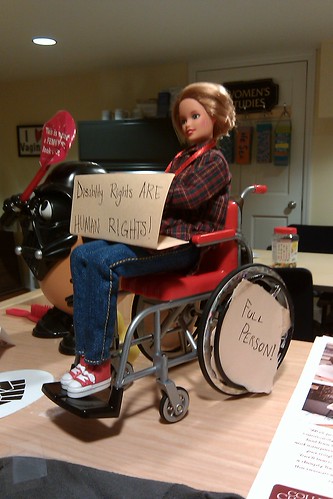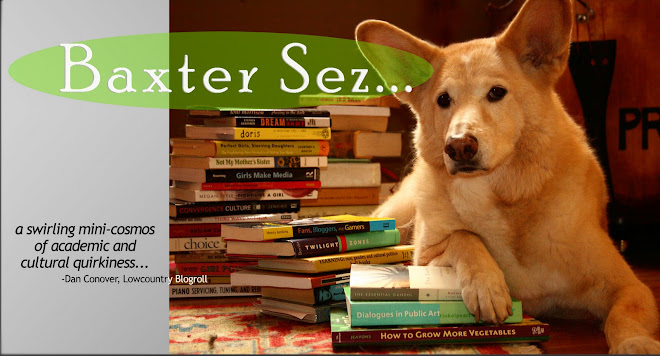On Monday I'm teaching Life As We Know It for the first time--the whole book to my graduate class, and an excerpt for my undergraduates. As regular readers know, this is a book I've read probably five times, and each time new things jump out at me. Part of the experience I'm having this time around is similar to what I discussed with my latest rereading of Too Late to Die Young: I'm getting to experience the book as a series of unpredictable, exciting conversations I'm about to have.
But this book is a little different for me, because it's a book with which I've had an intimate relationship. This book marked one of several very important turning points for me early in Maybelle's life. Ages ago I heard a teacher say that if you could give a person the exact right book for the moment they were in, the book could solve their problems--and Life As We Know It kind of functioned that way for me. It was one of the narratives that helped yank me out of grief and confusion and into excitement, high expectations, cultural criticism, and appropriate outrage. (And a belated public thanks here to Rob Spirko, who sent me this blog post that put Michael Bérubé on my radar.)
And speaking of outrage, that was part of what I experienced today reading for class. In the first chapter of the book, Bérubé discusses, among other things, the recent history of Down syndrome and how much our culture's attitudes have changed in the last forty years. I know I've talked about this here and in my classes a billion times, but the fact is that this is incredibly recent change. A paradigm shift. What I read today that got me was this:
the Kingsleys...were told by an expert in special education that "in my twenty three years of experience I've never yet seen a mongoloid who could read."
This got to me so much that Maybelle, who wasn't feeling well today and was watching the Wiggles, got up from in front of the tv and walked over to me to find out why I was crying. Maybelle is two and a half years old, and she can read. Two and a half years old! It seems like if you're going around proclaiming that in 23 years you've "never seen a mongoloid who could read," you might take a tiny bit of time and give a try to teaching someone to read. I mean, in a career of 23 years, it seems like two and a half years might not have been that long to try teaching a person with Down syndrome to read. We tried, and guess what? Reading! She's up to 100 words!
Biffle tried to calm me down a bit, reminded me that these weren't hostile horrible people, they were just folks who believed what their historical moment told them was true. And of course that's right. But it absolutely breaks my heart to think of the suffering, diminishment, and loss--to individuals and to our human community--that these unexamined stereotypes caused.
The
REACH Program brought
Norman Kunc to campus to speak this week, and at his evening presentation, he made a point that relates to what's getting me here. He argued that our culture believes that ability creates opportunity. We segregate people with disabilities because we believe that once they have abilities, then they'll get to be in mainstream society--then they'll have opportunities. But that's not how it works. Maybelle knows how to read because we gave her the opportunity: it was the opportunity that led to the ability. And this is true for all of us, disabled and nondisabled alike.
Biffle is interested in finding out if I'm able to teach this book without crying. We'll find out.
 This is Becky, Barbie's friend who's a school photographer and uses a wheelchair. RGT (the class's fannish nickname for feminist disability studies scholar Rosemarie Garland-Thomson) refers to her as "a disabled, queer Becky" because she bucks the norms of appropriate Barbie-land femininity. RGT writes,
This is Becky, Barbie's friend who's a school photographer and uses a wheelchair. RGT (the class's fannish nickname for feminist disability studies scholar Rosemarie Garland-Thomson) refers to her as "a disabled, queer Becky" because she bucks the norms of appropriate Barbie-land femininity. RGT writes, I know for a fact that Becky came from eBay, and while I understand that we significantly diminished her resale value, I think she is soooo cool and will be a meaningful addition to the iconography of WGS.
I know for a fact that Becky came from eBay, and while I understand that we significantly diminished her resale value, I think she is soooo cool and will be a meaningful addition to the iconography of WGS.
